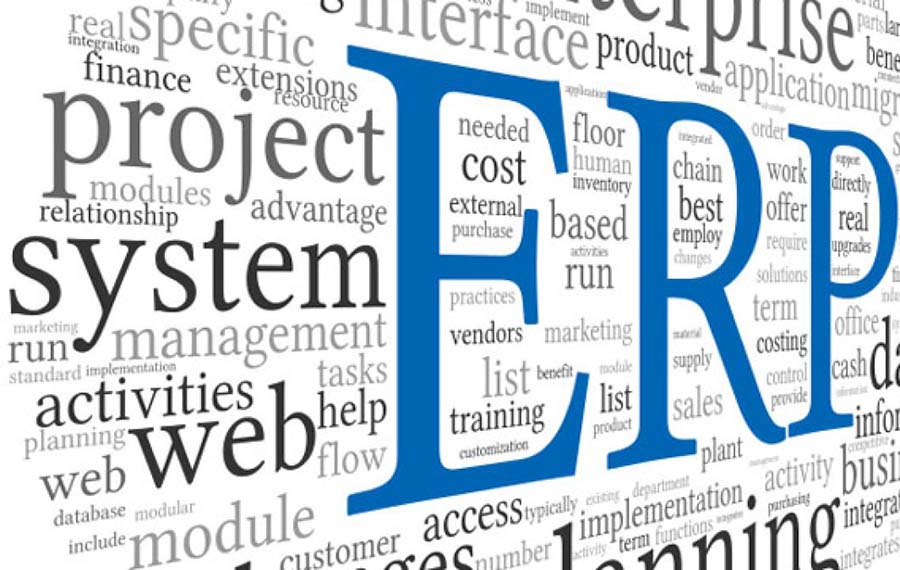In the rapidly evolving business landscape, small businesses face unique challenges, particularly in managing projects effectively. As a small business owner, you need tools that not only streamline operations but also integrate seamlessly with other business functions. This is where Enterprise Resource Planning (ERP) project management software comes into play.
ERP project management software combines the functionalities of project management with various business processes such as finance, human resources, and inventory management. This integration creates a holistic view of business operations, enabling better decision-making and resource allocation. For small businesses, this means having tools that consolidate data, track progress, and facilitate collaboration across departments.
Small businesses often operate with limited resources, making it crucial to optimize every aspect of their operations. ERP project management software provides a centralized platform where project timelines, budgets, and resource allocations can be monitored in real-time. This allows team members to stay aligned on objectives, reducing the risk of miscommunication and delays.
Benefits of ERP in Project Management
The benefits of utilizing ERP project management software extend beyond mere efficiency. Here are some of the key advantages:
- Centralized Data Access: ERP systems store all project-related information in a single platform, enhancing visibility and accessibility for team members.
- Improved Collaboration: Integrated tools facilitate communication among team members, ensuring everyone is on the same page.
- Real-Time Analytics: With built-in analytics, businesses can track project performance and make data-driven decisions promptly.
By leveraging these benefits, small businesses can significantly enhance their project management capabilities, leading to improved outcomes and customer satisfaction.
Top ERP Project Management Software for Small Businesses
Odoo
Overview: Odoo is a highly versatile ERP solution that offers a suite of applications, including project management, CRM, and inventory management. Its modular approach allows businesses to select features that align with their specific needs.
Key Features: Odoo’s project management module includes Gantt charts, task assignment, and collaboration tools. The user-friendly interface makes it easy for teams to navigate, while customizable dashboards provide insights into project performance.
Pricing: Odoo’s pricing is flexible, allowing businesses to pay only for the modules they need. This makes it a cost-effective choice for small businesses looking to scale.
Zoho Projects
Overview: Zoho Projects is part of the larger Zoho ecosystem, offering robust project management features that integrate seamlessly with other Zoho applications. This is particularly beneficial for businesses already using Zoho tools for CRM or finance.
Key Features: Features such as time tracking, task management, and document sharing make Zoho Projects an excellent choice for small teams. The platform also includes reporting tools that help managers assess project performance effectively.
Pricing: Zoho Projects offers competitive pricing, with various tiers to accommodate businesses of different sizes. Its affordability and comprehensive features make it an attractive option for small businesses.
SAP Business One
Overview: SAP Business One is a comprehensive ERP solution that caters specifically to small and medium-sized enterprises. It offers powerful project management tools that integrate with other business functions.
Key Features: With features like project tracking, resource scheduling, and financial management, SAP Business One provides a holistic view of project performance. Its customizable reporting capabilities also allow businesses to generate insights tailored to their needs.
Pricing: While SAP Business One may require a higher initial investment, its extensive functionalities make it a worthwhile option for businesses anticipating growth.
Key Features to Look for in ERP Project Management Software
When selecting ERP project management software, effective project planning and scheduling capabilities are critical. Look for features that include:
- Gantt Charts: These visual tools help you understand project timelines and task dependencies.
- Milestone Tracking: This feature allows you to monitor significant phases of your project, ensuring that deadlines are met.
- Task Management: Assigning tasks with specific deadlines and priorities helps keep your team focused and accountable.
Having robust planning and scheduling features ensures that your projects are organized and well-executed. Efficient resource management is another critical aspect of successful project management. Look for ERP software that offers:
- Resource Allocation: This feature helps you track the availability of team members and allocate tasks based on their capacity.
- Budget Management: Keeping tabs on project budgets and expenditures is vital for small businesses to avoid overspending.
- Workload Monitoring: Identifying resource bottlenecks allows you to redistribute tasks effectively and prevent burnout.
By focusing on resource management, you can optimize your team’s performance and project outcomes.
Integration Capabilities
Finally, the ability to integrate with other business tools is essential for maximizing the effectiveness of your ERP project management software. Key integration capabilities to consider include:
- Third-Party Integrations: Ensure that the software is compatible with existing tools, such as CRM and accounting software.
- Data Sharing: Seamless communication across departments can significantly enhance collaboration and efficiency.
- API Access: Custom integrations allow you to adapt the software to your evolving business needs.
Investing in ERP project management software with strong integration capabilities can streamline your operations and improve overall productivity.
Conclusion
Selecting the right ERP project management software is vital for small businesses looking to enhance their project workflows. By understanding the benefits of ERP systems, exploring top software options, and focusing on essential features, businesses can significantly improve their project management capabilities. This investment not only streamlines operations but also contributes to achieving long-term objectives, making ERP project management software an invaluable asset in today’s competitive landscape.
By embracing these tools, small businesses can position themselves for success, ensuring they are well-equipped to manage projects efficiently and drive growth. With the right ERP project management software, you can transform the way your business operates, leading to improved outcomes and higher customer satisfaction.


Hi, this is a comment.
To get started with moderating, editing, and deleting comments, please visit the Comments screen in the dashboard.
Commenter avatars come from Gravatar.